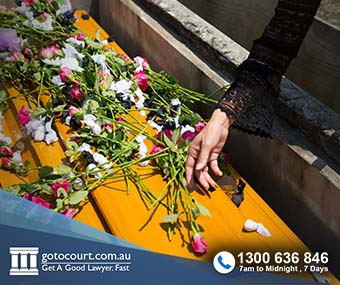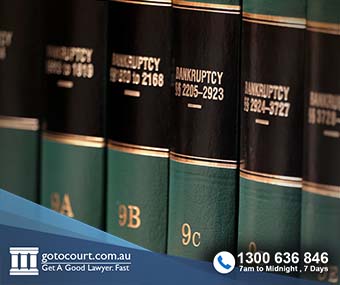Call our lawyers
now
or,
have our lawyers
call you
Residential Tenancies in Tasmania
Updated on Dec 02, 2023 • 5 min read • 186 views • Copy Link
Residential Tenancies in Tasmania
A residential tenancy involves a lease or rental agreement between the owner and the occupant of premises that are used as a home. The Residential Tenancy Act 1997 sets out the general obligations of landlords and tenants in Tasmania and covers matters such as rent, repairs, bonds and sub-lets/transfers. This page deals with residential tenancies in Tasmania.
Legislation
The Residential Tenancy Act 1997 covers all residential tenancy agreements in Tasmania, whether the agreement is in writing (express) or implied (eg, through conduct or conversation). The Act cannot be contracted out of, meaning that if a term of a lease is inconsistent with the Act, it is not valid.
General responsibilities of landlords
Landlords have certain obligations to tenants some of which are summarised below.
Ensuring quiet and peaceful enjoyment of the premises
This means providing proper notice if the landlord wants to attend the premises, and only attending the premises for a good reason, such as an inspection or to carry out repairs.
Carrying out repairs
Urgent repairs are repairs to water, heating and electricity. These repairs must be carried out as soon as practicable.
General repairs for which the landlord is responsible must be carried out within a reasonable time.
Subletting
The landlord must not unreasonably refuse permission to sub-let or transfer the premises to someone else.
Bond
The landlord may only charge a maximum of four weeks’ rent as a security deposit and must give the tenant a receipt for any rent paid.
General responsibilities of tenants
Tenants also have certain responsibilities to the landlord in relation to the premises, some of which are summarised below.
Use of premises
The tenant must not use the premises for an illegal or dangerous purpose
Damage
The tenant must not damage the premises
Repairs
The tenant must notify the landlord of the need for urgent repairs immediately and general repairs within seven days of being aware of the problem.
Subletting
The tenant must not sub-let or transfer the premises to someone else without the landlord’s permission
Rent
The tenant must pay the rent and any lawful rent increases in full and on time, even if the tenant believes the landlord has breached the tenancy agreement themselves
Both the landlord and the tenants have a responsibility to maintain the premises in the same condition it was in at the start of the lease, subject to fair wear and tear
Residential tenancy disputes
There are many types of residential tenancy disputes which may arise between landlord and a tenant. These include disputes about:
- rental payments (for example, the tenant has not paid the rent on time or has only made a part payment)
- rental increases (for example, the landlord has attempted to increase the rent by a figure the tenant considers is unreasonable)
- repair issues (for example, the landlord has not carried out repairs that the tenant considers are the landlord’s responsibility)
- nuisance issues (for example, the tenant has been disruptive to neighbours or the landlord has interfered with the tenant’s right to privacy by showing up unannounced and without good reason)
Dealing with residential disputes
There are a few different ways a residential tenancy can be ended.
The landlords can issue a Notice to Vacate, particularly in cases where the tenant has not paid rent by the due date. The Notice to Vacate will give the tenant a certain amount of time to vacate the property. The amount of time given will depend on the reason for issuing the notice.
For example, if the reason is for failure to pay rent or another breach of the lease, the tenant will have 14 days to pay the outstanding amount (or rectify the breach). After this time, the landlord can take possession of the premises and claim any amount that is still outstanding through the bond. If a periodic tenancy is being ended because the property is to be renovated or sold, the tenant has 42 days to vacate if the property is to be renovated or sold.
The tenant can issue a Notice to Terminate if the landlord has breached the tenancy agreement (for example, by not carrying out repairs that they are responsible for). A Notice to Terminate must give the landlord 14 days’ notice that the tenant considers the agreement at an end and will be vacating the premises.
It is worth noting that while tenants may be tempted to respond to breaches of the lease agreement by the landlord by withholding rent, this action is not justified by a breach of the lease by the landlord. The duty to pay rent due under a lease is separate from the landlord’s duties under the lease. If rent is not paid, this will be treated as a breach of the lease by the tenant.
Resolving residential disputes
Landlords and tenants should always try to resolve disputes themselves wherever possible.
If a dispute about a matter such as a bond or a rent increase cannot be resolved directly, an application can be made to the Minor Civil division of the Magistrates Court. The Magistrates Court can also hear applications from property owners and tenants for urgent termination of leases where the other party is causing serious damage to the premises.
If you require legal advice or representation in any legal matter, please contact Go To Court Lawyers.


Affordable Lawyers
Our Go To Court Lawyers will assist you in all areas of law. We specialise in providing legal advice urgently – at the time when you need it most. If you need a lawyer right now, today, we can help you – no matter where you are in Australia.How It Works








1. You speak directly to a lawyer
When you call the Go To Court Legal Hotline, you will be connected directly to a lawyer, every time.


2. Get your legal situation assessed
We determine the best way forward in your legal matter, free of charge. If you want to go ahead and book a face-to-face appointment, we will connect you with a specialist in your local area.


3. We arrange everything as needed
If you want to go ahead and book a fact-to-face appointment, we will connect you with a specialist in your local area no matter where you are and even at very short notice.















